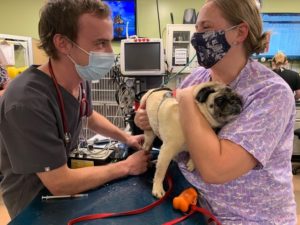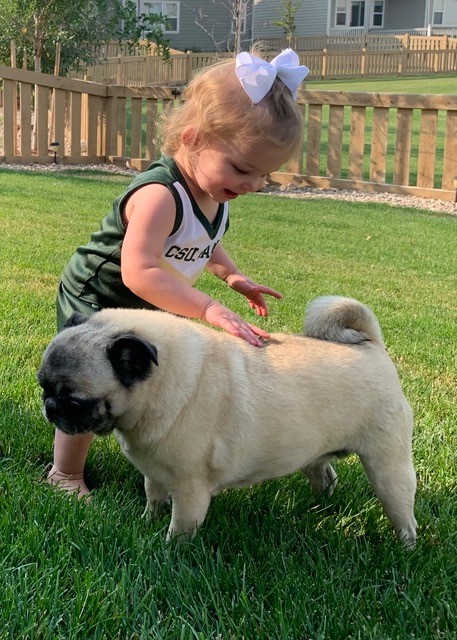By Dr. Amanda Cavanagh
Emergency veterinarians often order blood gas tests to help them understand life-threatening conditions. An arterial blood gas test measures pH balance, oxygen and carbon dioxide levels in the blood. But they need more information for dogs at high altitudes.
 Veterinarians do not yet know what normal values for arterial blood gas are for dogs who live in a high-altitude environment.
Veterinarians do not yet know what normal values for arterial blood gas are for dogs who live in a high-altitude environment.
The Arterial Blood Gas at Altitude Study at the Colorado State University James L. Voss Veterinary Teaching Hospital is looking for healthy dogs, especially brachycephalic (short-muzzled, flat-faced) breeds — English bulldogs, French bulldogs, and pugs — to participate in this research that will show veterinarians if dogs breathe differently in high altitude environments.
We are looking for dogs who:
- are at least 1 year old
- are able to undergo a blood draw with mild restraint
- have no medical conditions and receive no medications
- have lived around Fort Collins for at least 6 months
- have not undergone prior airway surgery (for brachycephalic breeds)
Your dog will receive (at no charge):
- a physical examination
- CBC
- chemistry
- arterial blood gas
- a 3-minute indoor trot test to grade brachycephalic airway changes (for brachycephalic breeds)
To enroll, email: Charles.Talbot@colostate.edu
Dr. Amanda Cavanagh is a board-certified assistant professor of Small Animal Emergency and Critical Care, and section head of the Urgent Care Service at the James L. Voss Veterinary Teaching Hospital.
